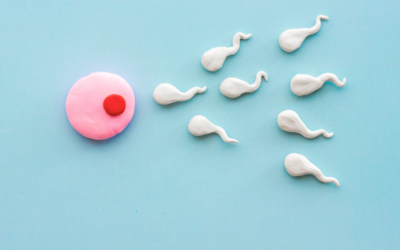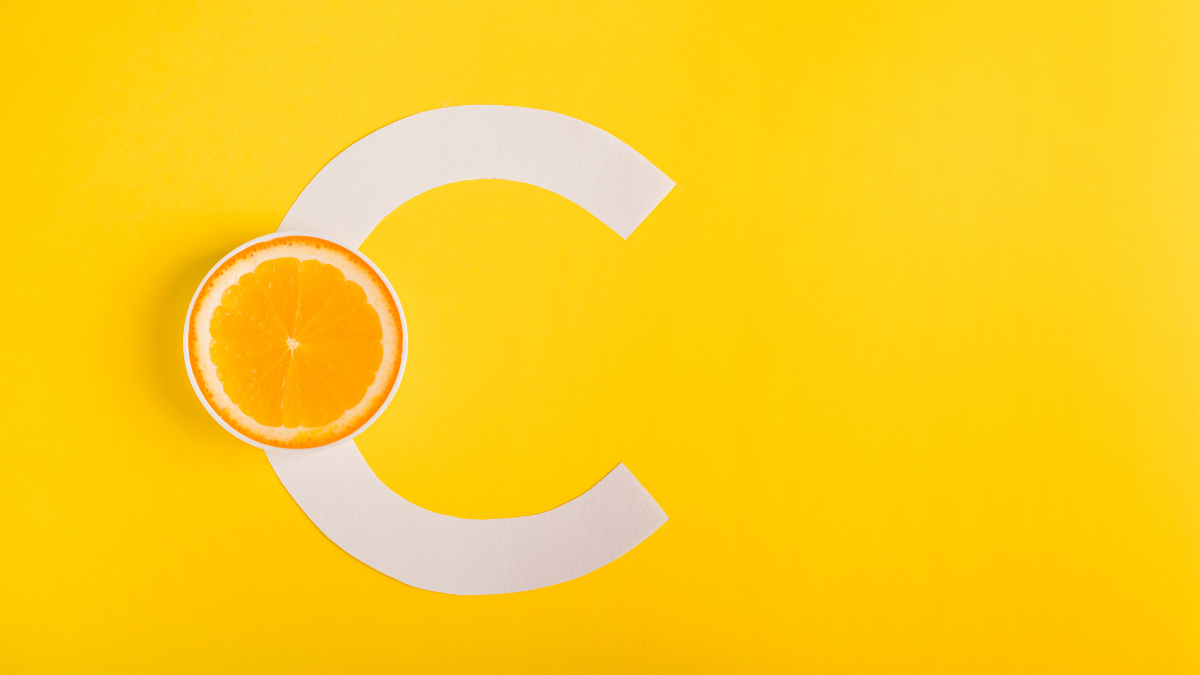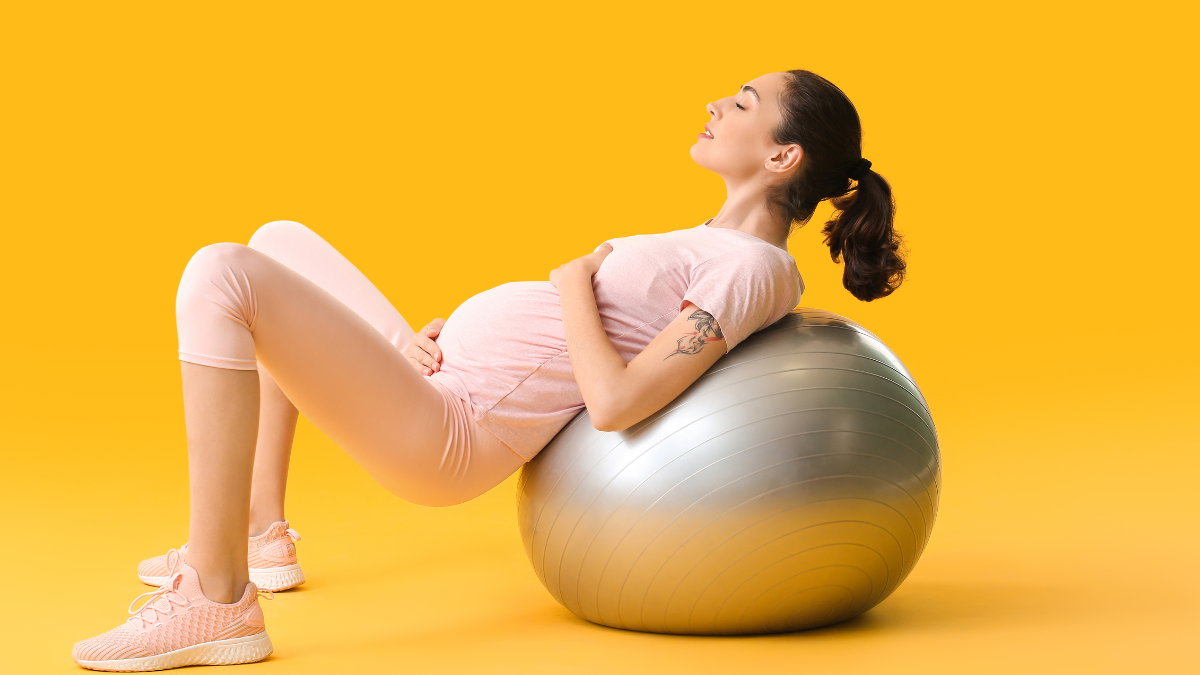Welcome to Week 13 of pregnancy—the moment you officially step into the second trimester! If you’ve been counting down the days to leave morning sickness behind, this week might feel like a breath of fresh air. Your energy is starting to bounce back, your little lemon-sized baby is growing quickly, and you may even notice the first hint of a bump. In this guide, we’ll chat about the most common Week 13 of pregnancy symptoms, the amazing changes happening with your baby, and simple tips to keep you feeling your best as you glide into this exciting new stage.
Table of Contents
How Many Months Is Week 13 of Pregnancy?
By Week 13 of pregnancy, you’ve officially entered month four—hello, second trimester! Your first trimester is now behind you, and you’re about one-third of the way to meeting your baby. Many parents celebrate this milestone by sharing their happy news with friends and family, since the risk of miscarriage drops noticeably after the twelve-week mark.
Baby Development at Week 13 of Pregnancy
Your little one is making remarkable progress:
- Size & Weight: Roughly the size of a lemon—about 7–8 cm (3 inches) long and 20–25 grams in weight.
- Proportions: The head is still large, but is now growing in proportion with the body.
- Bones & Muscles: Tiny bones are hardening, and muscles are strong enough for stretching and kicking.
- Facial Features: Eyes move closer together, ears shift into place, and your baby can frown, squint, and even suck their thumb.
- Internal Organs: The pancreas is producing insulin, and the kidneys begin releasing urine into the amniotic fluid.
- Movements: Your baby wriggles constantly, though most moms won’t feel those flutters until 16–20 weeks.
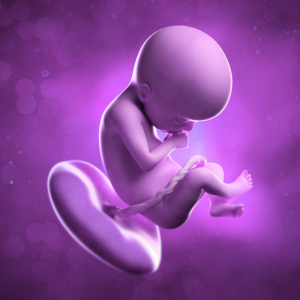
Common Symptoms at Week 13 of Pregnancy
Many women feel better than they have in weeks, but you might notice:
- Reduced Nausea: Morning sickness often eases as hormones stabilize.
- Renewed Energy: Fatigue lifts, making it easier to enjoy daily activities.
- Increased Appetite: With nausea fading, hunger can kick in—choose nutrient-dense foods.
- Round Ligament Pain: Stretching ligaments may cause mild pulling sensations in the lower abdomen.
- Visible Baby Bump: Especially if this isn’t your first pregnancy, a small bump often shows by Week 13 of pregnancy.
- Skin Changes: The “pregnancy glow,” darker nipples, or a faint line (linea nigra) on your belly can appear.
Nutrition Tips for Week 13 of Pregnancy
Good nutrition now lays the foundation for your baby’s growth.
- Protein: Lean meats, eggs, beans, tofu, and lentils support tissue and muscle development.
- Folic Acid & Iron: Continue prenatal vitamins; add leafy greens, citrus fruits, and fortified cereals.
- Calcium & Vitamin D: Strengthen bones with dairy, fortified plant milks, almonds, and salmon.
- Healthy Fats: Avocado, nuts, seeds, and olive oil provide essential omega-3s for brain growth.
- Hydration: Drink at least 8–10 glasses of water daily to prevent constipation and support amniotic fluid.
Exercise and Movement
Gentle activity is safe for most moms:
- Walking: A simple way to stay active without strain.
- Prenatal Yoga: Improves flexibility and helps with relaxation.
- Swimming: Supports joints while giving a full-body workout.
Always check with your healthcare provider before starting or changing an exercise routine.
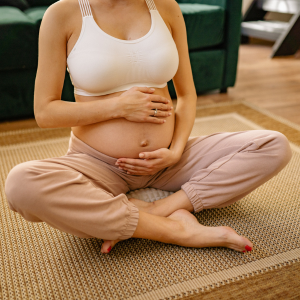
Emotional Well-Being
Hormones are still shifting, but many women notice a mood boost:
- Connect: Share feelings with your partner or a close friend.
- Prenatal Classes: Meeting other expectant moms builds confidence and community.
- Mindfulness: Breathing exercises or short meditations help reduce stress.
Week 13 Prenatal Care Checklist
- Book Your Next Appointment: Your provider will check your weight, blood pressure, and the baby’s heartbeat.
- Consider Genetic Screening: Optional tests for chromosomal conditions often happen now.
- Update Your Exercise Plan: Discuss safe workouts with your doctor.
- Plan the Announcement: Many families share their news after the first trimester.
How Should I Feel at 13 Weeks Pregnant?
Every pregnancy is unique, but many people notice a welcome shift as they reach Week 13 of pregnancy. Hormones begin to settle, so the constant nausea and exhaustion of the first trimester often ease. You might feel:
- More Energy – Many moms say they finally have the strength to get back to everyday routines.
- Less Morning Sickness – Queasiness usually fades, though a little lingering nausea is still normal.
- A Growing Appetite – With nausea subsiding, hunger can kick in. Focus on balanced meals and healthy snacks.
- Round Ligament Twinges – Mild stretching or pulling in your lower belly is common as your uterus expands.
- Mood Lift – Hormonal changes may bring a brighter outlook, but occasional mood swings can still pop up.
Remember, it’s also perfectly normal if you don’t feel exactly this way. Some women still have fatigue or nausea during Week 13 of pregnancy, and that’s okay. Listen to your body, stay hydrated, eat nourishing foods, and check in with your healthcare provider if anything feels off or worries you.
What Is Special About Week 13 of Pregnancy?
Week 13 of pregnancy is exciting because it marks the official start of the second trimester—often called the “honeymoon period” of pregnancy. A few standout milestones make this week feel extra special:
- Lower Risk of Miscarriage
After the first trimester, the risk of miscarriage drops significantly, which is why many parents choose this time to share their big news. - Baby’s Rapid Growth
Your little one is about the size of a lemon, bones are hardening, facial features are forming, and tiny organs like the pancreas and kidneys are now working. - More Energy for You
Many moms notice that morning sickness eases and energy levels rise, making daily life more comfortable. - First Signs of a Bump
Your uterus is moving up and out of the pelvis, so a small baby bump often begins to show. - Bonding Moments
Hearing your baby’s heartbeat at a prenatal visit around this time can be unforgettable.
Together, these changes make Week 13 of pregnancy a joyful turning point—your baby is thriving, and you can finally start to relax and enjoy this next phase of the journey.
Is 13 Weeks Pregnant Considered 3 Months?
It can be a little confusing to match pregnancy weeks with months, but here’s how it breaks down:
- Pregnancy lasts about 40 weeks, which equals roughly nine calendar months.
- Months don’t fit neatly into four-week blocks, so the math isn’t exact.
By Week 13 of pregnancy, you’ve completed three full months, and you’re stepping into month four, which is the very start of the second trimester.
So yes, at 13 weeks you’ve been pregnant for just over three months, but most doctors will also say you’re now in month four of your pregnancy timeline.
What Should I Avoid at 13 Weeks Pregnant?
By Week 13 of pregnancy, you’re entering a more comfortable stage, but some everyday items and habits are still best left out to protect you and your baby. Here’s what to skip or limit:
- Alcohol and Smoking
Avoid all alcoholic drinks and any form of smoking or vaping, as these can affect your baby’s growth and development. - High-Mercury Fish
Stay away from shark, swordfish, king mackerel, and tilefish. Instead, choose low-mercury options like salmon, shrimp, or tilapia. - Unpasteurized Foods
Raw milk, certain soft cheeses (such as Brie or feta made from unpasteurized milk), and unpasteurized juices can carry harmful bacteria. - Undercooked or Raw Meat, Eggs, and Seafood
These can harbor bacteria or parasites. Make sure everything is well-cooked. - Excess Caffeine
Keep caffeine to about 200 mg per day (around one 12-ounce cup of coffee). - Certain Medications and Herbal Supplements
Some over-the-counter medicines, herbal teas, and essential oils aren’t safe during pregnancy. Consult with your healthcare provider before taking any new medication. - Hot Tubs and Saunas
High temperatures can raise your core body temperature and pose a risk to your developing baby. - Heavy Lifting or High-Impact Activities
Gentle exercise is great, but avoid strenuous lifting or contact sports.
Remember, every pregnancy is unique. If you’re unsure about a specific food, drink, or activity during Week 13 of pregnancy, your healthcare provider is the best source for personalized guidance.
What Pains Are Normal at 13 Weeks Pregnant?
Mild aches can be completely normal at Week 13 of pregnancy, as your body adjusts to the second trimester. Common, harmless discomforts include:
- Round Ligament Pain
A stretching or pulling sensation on one or both sides of your lower belly as the uterus grows. - Mild Cramps or Twinges
Gentle, period-like cramps may happen as muscles and ligaments expand. - Backache
Your posture begins to shift as your bump grows, sometimes leading to lower-back soreness. - Headaches
Hormonal changes or dehydration can trigger occasional headaches. - Pelvic Pressure
A feeling of heaviness is common as blood flow increases in the pelvic area.
These sensations are typically brief and not severe. Call your healthcare provider right away if you notice:
- Sharp or constant abdominal pain
- Heavy bleeding or spotting
- Severe cramping that doesn’t ease with rest
- Fever, chills, or dizziness
Listening to your body and staying hydrated, stretching gently, and resting when needed can help you feel more comfortable during Week 13 of pregnancy.
Is Your Baby Fully Developed at 13 Weeks?
By Week 13 of pregnancy, your baby has formed all the major organs and body structures, which is an incredible milestone. The heart is beating strongly, tiny bones are hardening, and organs such as the kidneys and pancreas are starting to function.
However, your baby is not fully developed yet. Here’s what’s still happening:
- Growth and Maturation: Organs like the lungs and brain will keep growing and refining their functions for the rest of pregnancy.
- Fat and Muscle Development: Your baby will gain weight, develop muscle tone, and build fat stores to stay warm after birth.
- Sensory Skills: Hearing, vision, and other senses are just beginning to form and will continue to mature for many weeks.
So while the foundation is complete at Week 13 of pregnancy, your little one still needs the remaining months to grow stronger and prepare for life outside the womb.
Why Am I So Hungry at 13 Weeks Pregnant?
Feeling extra hungry at Week 13 of pregnancy is completely normal—and even a good sign that your body and baby are thriving. A few key reasons explain the sudden increase in appetite:
- Rising Energy Needs
Your baby is growing fast in the second trimester, and your body needs more calories and nutrients to keep up. - Hormonal Shifts
As first-trimester nausea fades and hormone levels out, your stomach empties faster and hunger signals feel stronger. - Blood Sugar Changes
Pregnancy naturally lowers blood sugar between meals, which can trigger stronger hunger pangs. - Morning Sickness Relief
If food finally sounds appealing again, you may feel like making up for lost time.
Healthy ways to handle hunger
- Eat small, balanced meals every 3–4 hours—think lean protein, whole grains, fruits, and vegetables.
- Keep nutritious snacks (nuts, yogurt, fruit) on hand to avoid reaching for empty-calorie treats.
- Drink plenty of water; mild dehydration can feel like hunger.
Remember, you don’t actually need to “eat for two.” Most providers recommend about 300 extra calories per day in the second trimester. If you’re ever unsure about weight gain or diet during Week 13 of pregnancy, check in with your healthcare provider for personalized guidance.
How Much Water Should I Drink at 13 Weeks Pregnant?
Staying well-hydrated is especially important at Week 13 of pregnancy, because your body is expanding blood volume, supporting amniotic fluid, and helping nutrients reach your baby.
- General Goal: Aim for about 8–12 cups (roughly 2–3 liters) of fluids each day.
- Best Choice: Plain water is ideal, but sparkling water, milk, and naturally flavored water all count.
- Listen to Your Body: Thirst, dark yellow urine, or a dry mouth are signs you need more.
- Extra Needs: If you’re exercising, spending time in hot weather, or noticing increased sweating, add an extra cup or two.
Tips to stay on track:
- Keep a refillable bottle with you.
- Sip steadily instead of chugging large amounts at once.
- Flavor water with slices of lemon, cucumber, or berries if plain water feels boring.
Good hydration during Week 13 of pregnancy helps prevent constipation, reduces swelling, and supports healthy amniotic fluid levels—simple steps with big benefits for you and your baby.
Can I Lay on My Back at 13 Weeks Pregnant?
At Week 13 of pregnancy, it’s generally still safe to lie on your back for short periods, especially if you’re comfortable. Your uterus is just starting to rise above the pelvis, so it’s not yet heavy enough to press strongly on the large vein (the vena cava) that carries blood back to your heart.
However, here are some helpful tips as you move deeper into the second trimester:
- Plan to Transition Soon
Most healthcare providers suggest switching to a side-sleeping position—preferably the left side—by about 20 weeks, when the baby and uterus are bigger. - Listen to Your Body
If you feel lightheaded, dizzy, or notice numbness while on your back, roll to your side right away. - Use Pillows for Support
A wedge or small pillow behind your back can keep you tilted slightly, easing the shift to side sleeping. - Short Rests Are Fine
Briefly lying on your back for exercise, stretching, or during a medical exam is typically not a problem at this stage.
So at Week 13 of pregnancy, you don’t need to panic if you wake up on your back. Just start practicing side-sleeping now, and it will feel natural as your bump grows in the coming weeks.

Is Your Belly Still Soft at 13 Weeks Pregnant?
Yes, it’s perfectly normal for your belly to still feel soft at 13 weeks of pregnancy. Here’s why:
- Uterus Size
At Week 13 of pregnancy, your uterus is only starting to rise above the pelvis. For many people, it’s still tucked low, so your abdomen may feel more like early bloating than a firm “baby bump.” - Body Differences
Everyone shows at a different pace. First-time moms often stay softer longer, while women who’ve been pregnant before may notice firmness a little earlier. - Gradual Changes
Over the next few weeks, the top of the uterus (the fundus) will move upward, and your belly will naturally feel rounder and firmer.
You might notice your lower stomach is slightly more pronounced or that clothes fit differently, but a squishy belly at this stage is completely typical. By the middle of the second trimester, most moms start to feel that distinct, firmer baby bump—but there’s a wide range of normal during Week 13 of pregnancy.
Final Thoughts on Week 13 of Pregnancy
Reaching Week 13 of pregnancy is a wonderful milestone. You’ve moved past the first trimester, your baby’s major organs are formed, and you may finally feel a welcome boost of energy. This is the perfect time to focus on nourishing meals, gentle exercise, and those exciting second-trimester plans—like picking baby names or sharing the news with loved ones.
Remember, every pregnancy unfolds a little differently. Whether your belly is still soft, your appetite has soared, or you’re simply enjoying a calmer phase, each change is part of your unique journey. Keep up with regular prenatal checkups, listen to your body, and celebrate the fact that you and your growing baby are already one-third of the way to meeting each other.

